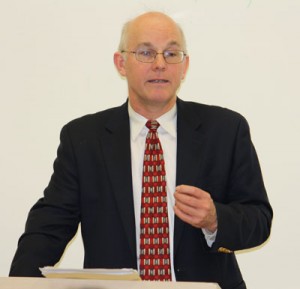Information
Venue
Start
End
CIL Supported Seminar: Law-Makers and Law-Takers Under the New Rules and Institutions of Global Regulatory Governance

Introduction
An extraordinary variety of global regulatory bodies now generate and apply regulatory norms and decisions, which affect individuals, businesses, state regulatory agencies, and national policy choices. Examples include the Financial Action Task Force know-your-customer and cash transaction reporting requirements for banks, World Trade Organization rules on what national product standards are allowable and the administrative procedures by which they must be applied, Basel Committee rules on capital adequacy of banks and the increased flow of International Accounting Standards Board and Financial Stability Board norms, regulatory decisions of the UN Commission on the Outer Limits of the Continental Shelf or regional fisheries commissions. Many standards come from non-governmental bodies, such as the International Organization for Standardization, ICANN internet standards, the International Olympic Committee and WADA (anti-doping), or standards set for ships not only by the International Maritime Organization but also by classification societies and insurers. This growth of regulatory authority and activity beyond the state is increasingly significant for business and government lawyers, and will figure increasingly not only in international litigation and arbitration, but also in national court proceedings. It has outstripped traditional international law theory centred on state action and inter-state agreement. It also challenges the adequacy of national law mechanisms. Major issues arise about transparency and participation in this kind of rule-making, about the proper roles of different review mechanisms, about how to hold transnational regulatory bodies accountable, and how to determine what weight should be given to such norms in national law and national courts and in other international bodies. Some national governments (and the European Union) and their agencies have great influence over these processes; on some issues, particular industry groups or NGOs have special influence. Most other governments and affected interests or publics have little choice but to take the rules as they find them, or try to opt-out which can be very costly or impossible in practice.
This lecture surveyed these major problems, and introduced the new concept of Global Administrative Law, which is the subject of a major project at NYU Law School with well over 100 papers already published. Global Administrative Law provides a powerful way to analyze, critique, and potentially to change specific global regulatory structures and the outcomes they produce.
About the Speaker
Benedict Kingsbury is Murry and Ida Becker Professor of Law and Director of the Institute for International Law and Justice at New York University School of Law (iilj.org). With Richard Stewart, he initiated and directs the IILJ’s Global Administrative Law Research Project, a pioneering approach to issues of accountability, transparency, participation and review in global governance, in which over 100 papers have been published since 2005. In 2009 they launched the worldwide Global Administrative Law Network of research institutions with a conference at Tsinghua Law School in Beijing. Together with anthropology professor Sally Engle Merry and development law professor Kevin Davis, Kingsbury has recently launched the IILJ’s new project on Indicators as a Technology of Global Governance. He also co-directs NYU Law School’s Program in the History and Theory of International Law, with Robert Howse and Global Professor Martti Koskenniemi. He is a New Zealand citizen, and received his LL.B (First Class Hons) from the University of Canterbury. Kingsbury previously held a permanent teaching position at Oxford University (where he earlier completed an M.Phil in International Relations supervised by the late Hedley Bull, and a D.Phil in Law supervised by the late Ian Brownlie), and has been a visiting professor at Harvard Law School, the University of Tokyo Law Faculty, the University of Padua, and the University of Paris-I (Pantheon-Sorbonne). Kingsbury’s research and publications reflect a commitment to a broad, theoretically-grounded approach to international law, closely integrating work in legal theory, political theory, history, and global governance. His recent articles address investor-state arbitration (he has written expert opinions in several recent arbitrations), the past and future of international courts (in the Cambridge Companion to International Law, ed. J Crawford and M. Koskeniemmi), global governance issues in national courts (in the Festschrift for ICJ Judge Sir Kenneth Keith), and ‘The Concept of Law in Global Administrative Law’ (European Journal of International Law, 2009). His recent co-edited books include The Challenge of Global Administrative Law in Latin America (2009, in Spanish); Climate Finance: Regulatory and Funding Strategies for Climate Change and Global Development (NYU Press, 2009, with Richard Stewart and Bryce Rudyk), and two books on Oxford jurist Alberico Gentili (1545-1608) currently in press with OUP.


